第24章
We only find, that the one does actually, in fact, follow the other. The impulse of one billiard- ball is attended with motion in the second. This is the whole that appears to the senses. The mind feels no sentiment or impression from this succession of objects:
Consequently, there is not, in any single, particular instance of cause and effect, any thing which can suggest the idea of power or necessary connexion.
From the first appearance of an object, we never can conjecture what effect will result from it. But were the power or energy of any cause discoverable by the mind, we could foresee the effect, even without experience; and might, at first, pronounce with certainty concerning it, by mere dint of thought and reasoning.
In reality, there is no part of matter, that does ever, by its sensible qualities, discover any power or energy, or give us ground to imagine, that it could produce any thing, or be followed by any other object, which we could denominate its effect. Solidity, extension, motion; these qualities are all complete in themselves, and never point out any other event which may result from them. The scenes of the universe are continually shifting, and one object follows another in an uninterrupted succession; but the power of force, which actuates the whole machine, is entirely concealed from us, and never discovers itself in any of the sensible qualities of body. We know that, in fact, heat is a constant attendant of flame; but what is the connexion between them, we have no room so much as to conjecture or imagine. It is impossible, therefore, that the idea of power can be derived from the contemplation of bodies, in single instances of their operation; because no bodies ever discover any power, which can be the original of this idea.[16]
Since, therefore, external objects as they appear to the senses, give us no idea of power or necessary connexion, by their operation in particular instances, let us see, whether this idea be derived from reflection on the operations of our own minds, and be copied from any internal impression. It may be said, that we are every moment conscious of internal power; while we feel, that, by the simple command of our will, we can move the organs of our body, or direct the faculties of our mind. An act of volition produces motion in our limbs, or raises a new idea in our imagination. This influence of the will we know by consciousness. Hence we acquire the idea of power or energy;and are certain, that we ourselves and all other intelligent beings are possessed of power. This idea, then, is an idea of reflection, since it arises from reflecting on the operations of our own mind, and on the command which is exercised by will, both over the organs of the body and faculties of the soul.
We shall proceed to examine this pretension; and first with regard to the influence of volition over the organs of the body. This influence, we may observe, is a fact, which, like all other natural events, can be known only by experience, and can never be foreseen from any apparent energy or power in the cause, which connects it with the effect, and renders the one an infallible consequence of the other. The motion of our body follows upon the command of our will. Of this we are every moment conscious. But the means, by which this is effected; the energy, by which the will performs so extraordinary an operation; of this we are so far from being immediately conscious, that it must for ever escape our most diligent enquiry.
For ; is there any principle in all nature more mysterious than the union of soul with body; by which a supposed spiritual substance acquires such an influence over a material one, that the most refined thought is able to actuate the grossest matter? Were we empowered, by a secret wish, to remove mountains, or control the planets in their orbit; this extensive authority would not be more extraordinary, nor more beyond our comprehension. But if by consciousness we perceived any power or energy in the will, we must know this power; we must know its connexion with the effect; we must know the secret union of soul and body, and the nature of both these substances; by which the one is able to operate, in so many instances, upon the other.
, We are not able to move all the organs of the body with a like authority; though we cannot assign any reason besides experience, for so remarkable a difference between one and the other. Why has the will an influence over the tongue and fingers, not over the heart or liver?
This question would never embarrass us, were we conscious of a power in the former case, not in the latter. We should then perceive, independent of experience, why the authority of will over the organs of the body is circumscribed within such particular limits. Being in that case fully acquainted with the power or force, by which it operates, we should also know, why its influence reaches precisely to such boundaries, and no farther.
A man, suddenly struck with palsy in the leg or arm, or who had newly lost those members, frequently endeavours, at first to move them, and employ them, in their usual offices.
Here he is as much conscious of power to command such limbs, as a man in perfect health is conscious of power to actuate any member which remains in its natural state and condition.
But consciousness never deceives. Consequently, neither in the one case nor in the other, are we ever conscious of any power. We learn the influence of our will from experience alone. And experience only teaches us, how one event constantly follows another; without instructing us in the secret connexion, which binds them together, and renders them inseparable.